Conversation
"We rely on artists to create compelling visions of the future"
Interview with Anicka Yi
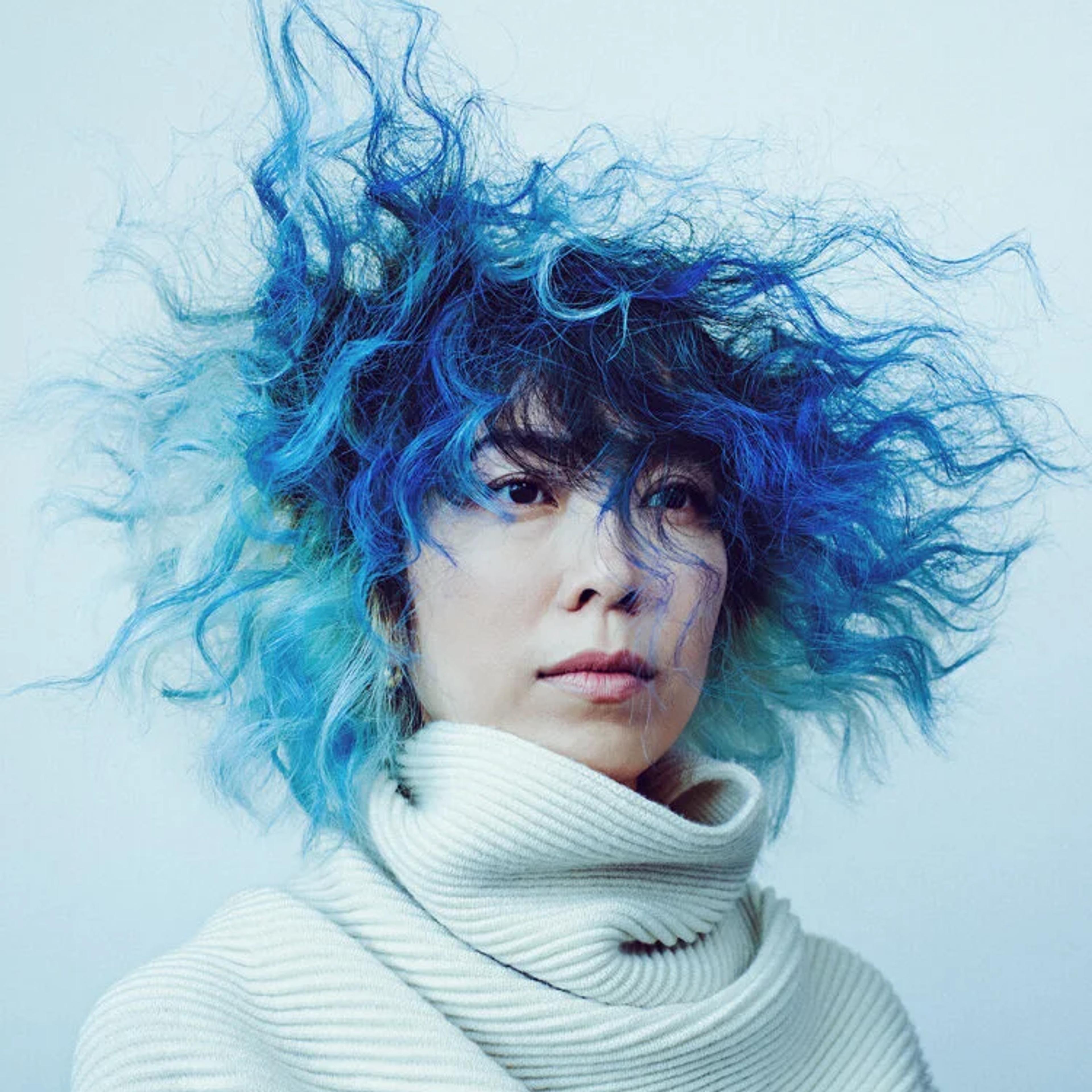
Anicka Yi (b. 1971, Seoul, South Korea) is an American-Korean conceptual artist known for her experiments with olfaction and unorthodox organic and perishable materials.
Drawing inspiration from scientific research, biology and perfume, her work lies at the intersection of politics and macrobiotics. Her practice questions the increasingly hazy taxonomic distinctions between what is human, animal, plant and machine, and is the result of an alchemical process of experimentation that explores often incompatible materials.
She collaborates with researchers to create media that are often inherently political, and delves into the cultural conditioning of sense and perception in a way she describes as a "biopolitics of the senses." Her diverse installations, which draw on scientific concepts and techniques to activate vivid fictional scenarios, ask incisive questions about human psychology and the workings of society.
Yi's work has been the subject of numerous solo exhibitions at institutions around the world, including Pirelli HangarBicocca, Milan; Tate Modern, London; the Solomon R. Guggenheim Museum, New York; Fridericianum, Kassel, Germany; Kunsthalle Basel, Switzerland; List Visual Arts Center, MIT, Cambridge, Massachusetts; The Kitchen, New York; and the Cleveland Museum of Art, Cleveland, Ohio. In 2016, Yi was awarded the Hugo Boss Prize and in 2019 her work was featured in the 58th International Venice Biennale, titled May You Live In Interesting Times. Anicka Yi was awarded the 2020 Tate Turbine Hall Hyundai Commission.
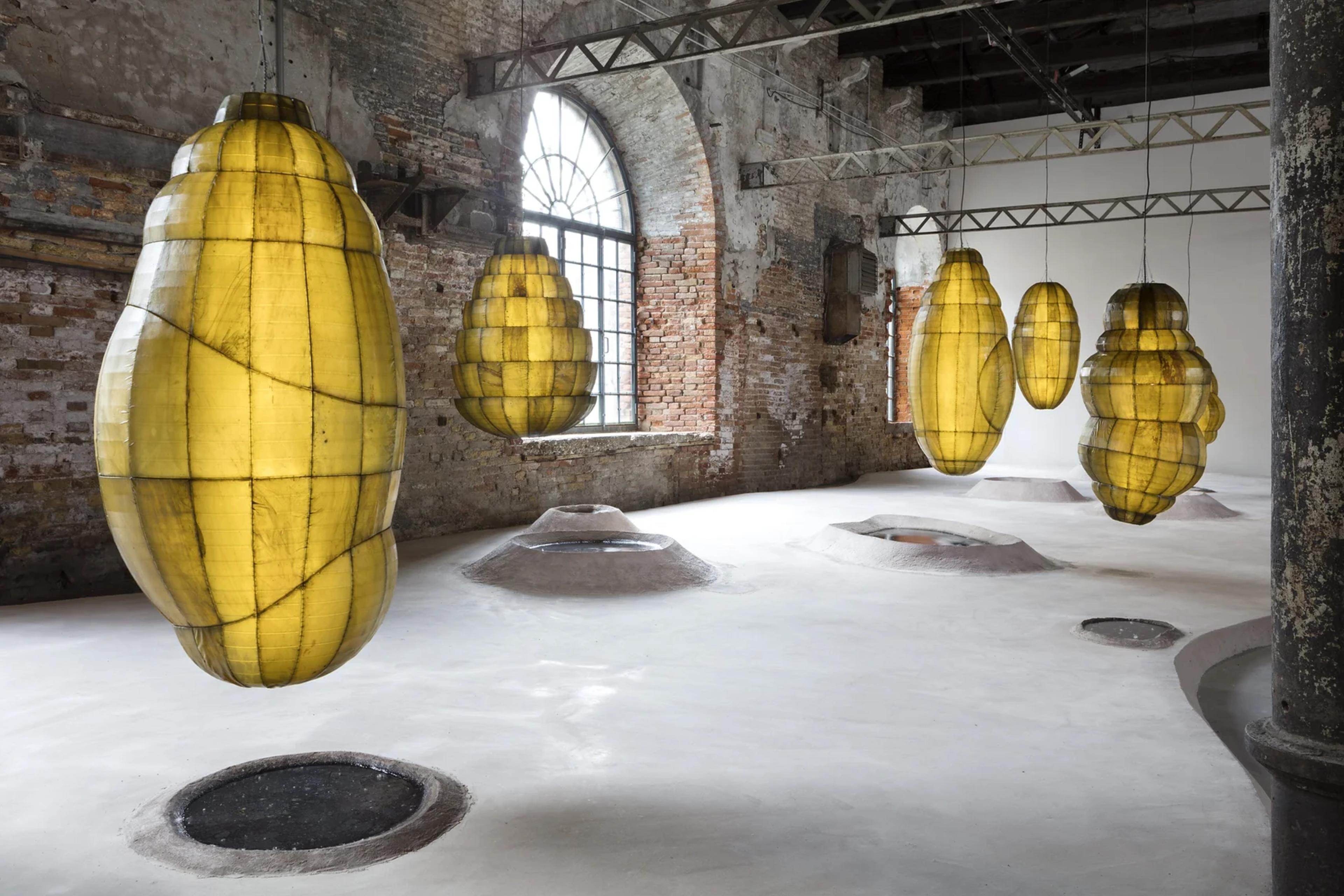
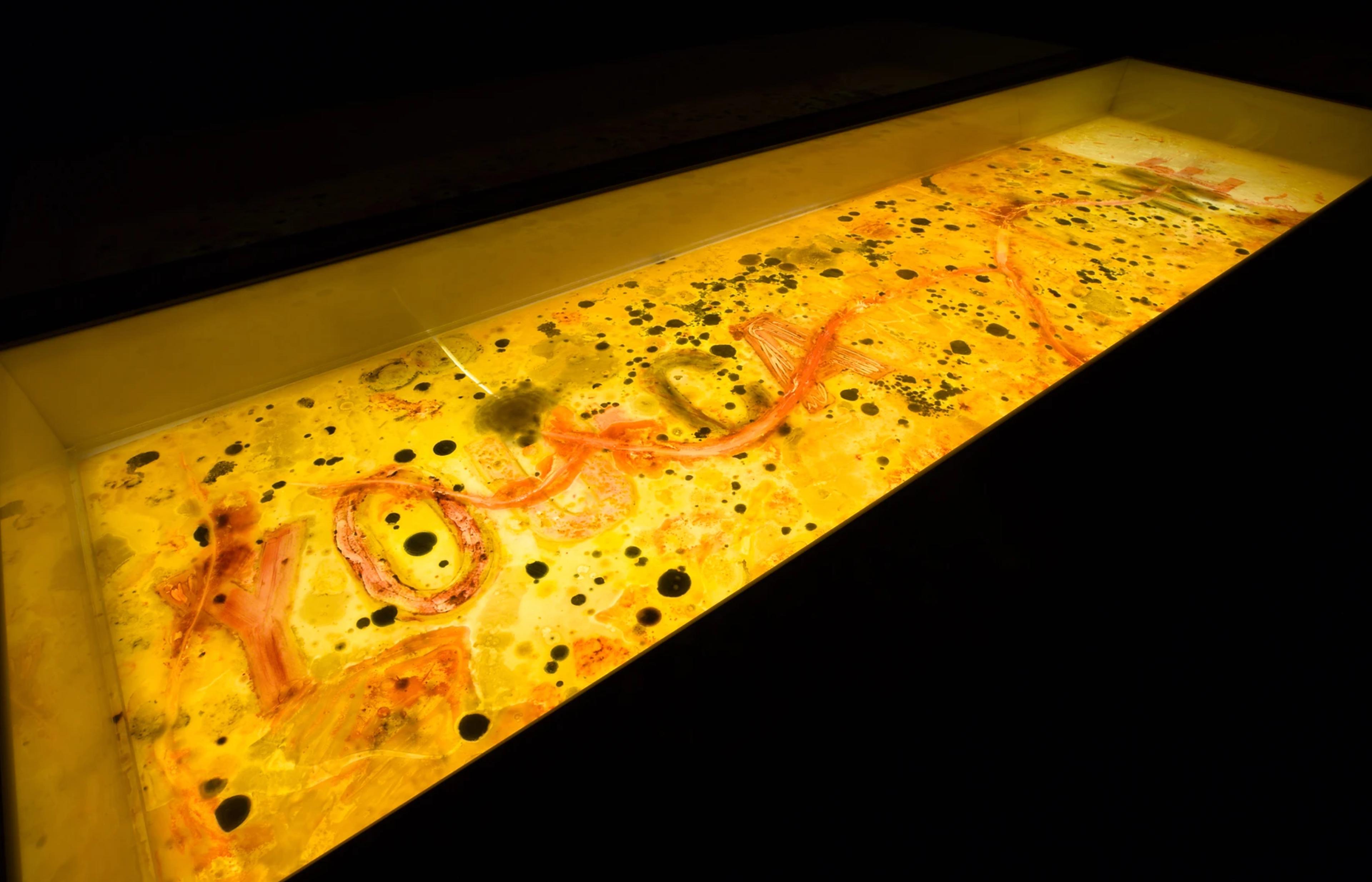
MADELEINE SCHWINGE: Can art foster social change - and what role can artists and their work play in this? Is there room for them to take a leading role?
ANICKA YI: Yes, art is a strong force for social change, though it usually operates in a much more subtle and gradual way than more direct forms like legislation and activism. Art operates in the aesthetic and philosophical realm — it influences our tastes, our values, our imagination, and our ideals. It can express unrecognized parts of our reality or it can suggest that other versions of reality are possible. Art does this by speaking to our senses, using physical materials to express something non-conceptual or something beyond language. You might experience an artwork for a moment and come away with a different understanding of the world, without ever needing to be persuaded with an argument or a debate. I don’t believe the purpose of art is to create theories or hypotheses. Instead art activates material potentials, it follows a material logic to pose questions about possible ways of being.
Artists today have a more important role than ever before. Many of our established concepts and institutions are crumbling in the face of technological, environmental, and political upheaval — even our understandings of what it means to be human or what it means to be alive are being disrupted. As our conceptions of life are dramatically reshuffled, I think artists have a vital role to play in imagining what life is and what it could be. In a time where we are bombarded with chaos and precarity, we rely on artists to create compelling visions of futures where mutual flourishing might be possible.
MS: In the face of the radical upheavals and crises of our time, can we still hope for a better future? And what impact might "narrative" have on this future's construction process?
AY: Hope is not so much a choice or an ability, but a necessary survival mechanism. I think that narrative is one of the most powerful tools we have as humans. Humans need stories and we use them to organize information that has become too complex for us. These stories act as lightning rods, but also become filters for our reality. That’s why they can be so effective, but also so dangerous. I’ve stated before that I think these stories perpetuate a lot of suffering and a lot of obstacles to our growth and evolution. Cultural narratives can perpetuate some of the worst aspects of humanity and they can solidify falsehoods such as patriotism, nationalism, racism, sexism, etc.
But narrative also lets us tell hopeful stories about things that don’t exist yet. It allows for creativity and speculation. My colleague Caroline Jones at MIT coined the term “biofiction” to describe the methodology of constructing narratives through the biological and biographical. Biofiction is a way to fuse the written history of life with the study of life. It acknowledges that our ideas about life are always partially based in objective reality, yet also partially constructed. We always have to acknowledge the many filters that exist in our perception and see how we might be able to destabilize them by telling different stories and asking different questions.
MS: What might be the premises of a transdisciplinary dialogue (between art, culture and other disciplines) capable of triggering social transformation? In your own work, what expertise or practices could go in the direction of such a transdisciplinarity?
AY: Transdisciplinary exchange brings a more holistic approach to the world. The disciplines are constructs we have erected and when they become too rigid, they start to deny the full humanity of those who activate them. Imagine a scientist who feels they have no place to make ethical arguments about a new scientific discovery. What about a mathematician with no sense of poetry for the patterns they observe in the world or an engineer without a sense of elegance and aesthetics?
I think what most readily transcends disciplines in my own work is my curiosity about the sensorium and about the physical and material nature of our reality. I often ask what these physical circumstances are and how they interact with our biases and our sense of identity. Take the question of how smell is tied to racial bias — this question might appeal to an artist, an anthropologist, a medical doctor, a chef, a perfumer, a molecular biologist, and so on.
MS: Assuming it is possible to build a better world on the ruins of the old one - what do you think it might look like? What would you wish for a better world?
AY: I am interested in a world where we have a more direct relationship with our living environment. At the moment many of us live in an alienated way from the natural world and nonhuman plants and animals, while on the other end of the spectrum, an increasing number of people are exposed to extreme climate events that are human-caused. We might combine our scientific knowledge of biology and ecology with a more holistic set of values that acknowledge our essentially symbiotic and de-vidualized nature. I think this is already happening — we are starting to think about survival in terms of collectivity and interdependence, rather than outdated narratives of dominance, predation, and “survival of the fittest.”
For me, beginning a practice of meditation has been a huge part of moving towards a world with less suffering. This allows me to have a small degree of removal from my direct, subjective experience of the world. You can escape your individualized ego for a brief moment and tap into something more universal, a better understanding of just how entangled and variable our reality is. I think this kind of awareness is essential to creating a more harmonious world. I describe this state one can achieve through meditation as the ventilated Self.
MS: It's often said that artists (and creative people) have this unique ability to endlessly search for the new, to start from scratch over and over again. When you start a new project, what strategies or rituals do you personally use?
AY: I’m not sure if artists and creatives have an innate ability to begin again and again — it’s something that can be equally painful and grueling as it can be invigorating. It’s important for artists to balance this impulse with more banal day-to-day forms of self care and self preservation. This kind of stamina is essential to maintaining a creative practice and I think it's more of a muscularity that gets built up over time. I like to think of my own creative process as a form of digging or tunneling. It takes away a lot of the mystique and glamor around creativity and highlights the tenacity and the exhaustion of it all.
When starting a new project, I always begin with deep research on a subject. I try to absorb as much as possible so I have a “lay of the land” so to speak. From there, I move into brainstorming where I let myself entertain the wildest and more absurd ideas I can think of. I always say that there’s no judgment in brainstorming. Once I have an idea of what I want to do, then comes the heavy lifting, the R&D to see if it's actually possible and how we can make it happen. These days I have so many ideas sporulating off of one another, it’s less challenging to start a new project and instead the problem is allocating proper time and attention to each project that is just starting to heat up, steadily simmering, boiling over, etc.
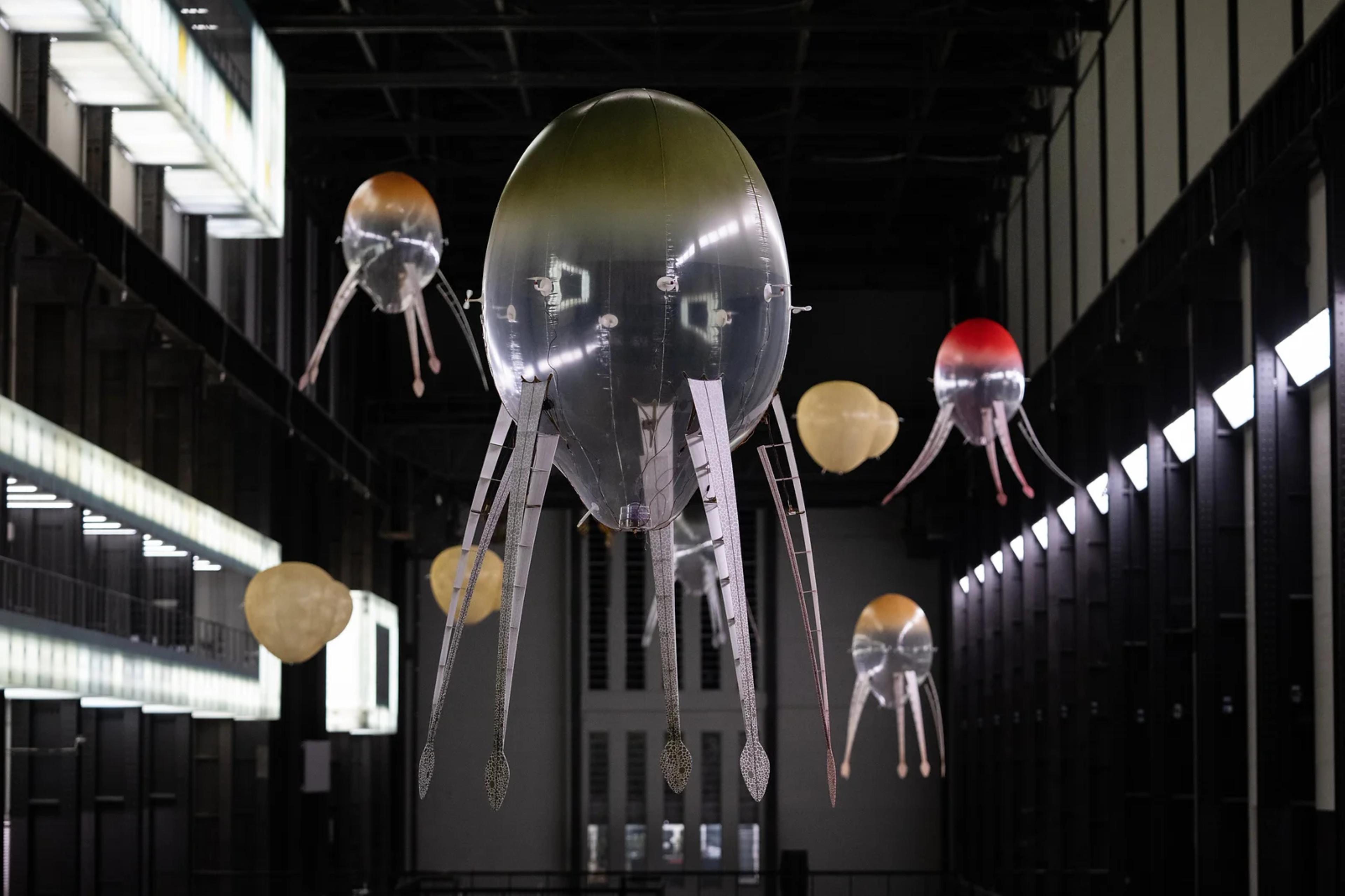
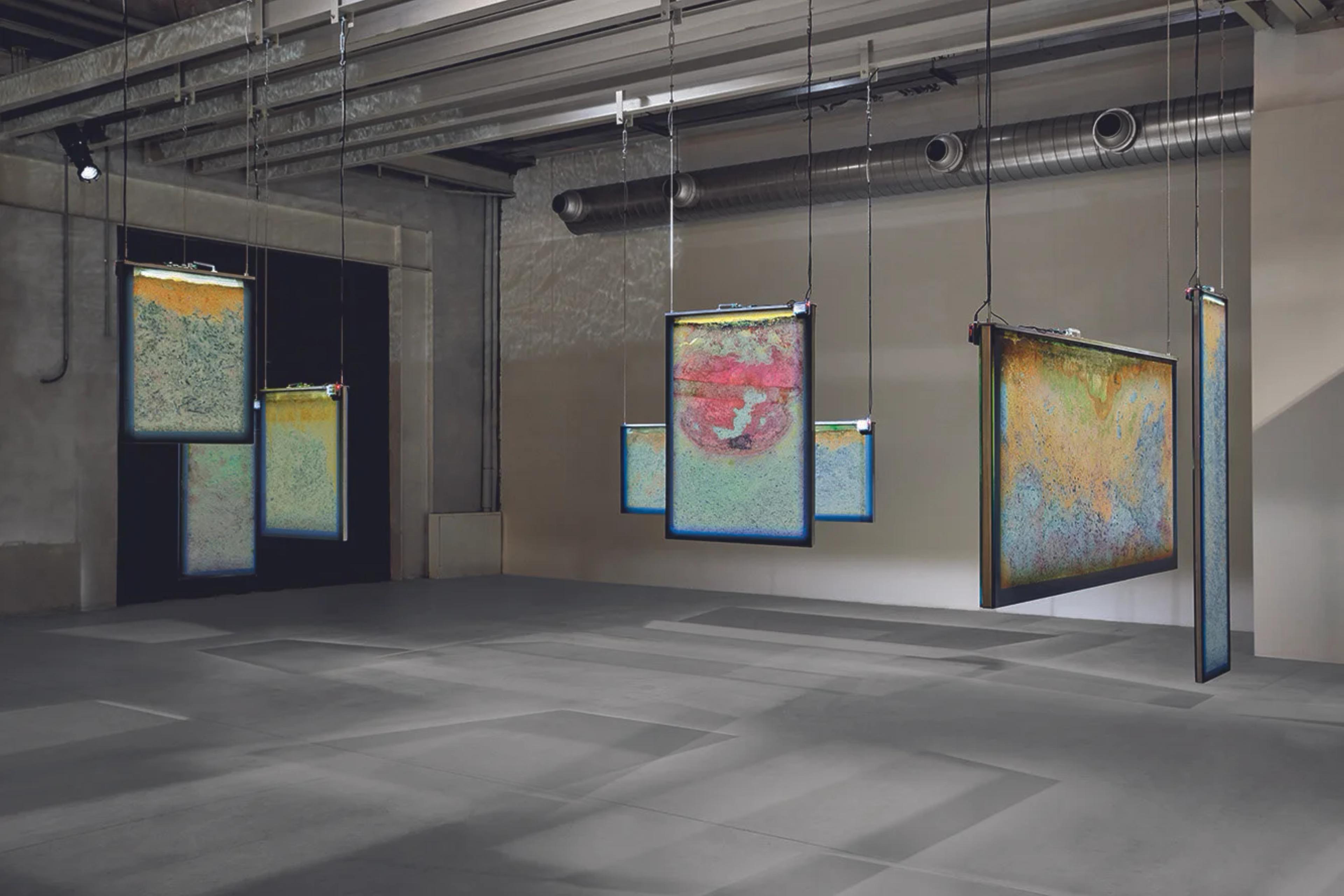
Front photo © Sebastian Kim
Photos in the text. Photo 1 Biologizing the Machine, 2019 © Renato Ghiazza; Photo 2 Grabbing at Newer Vegetables, 2015 © Agostino Osio; Photo 3 In Love With The World, 2021 © Will Burrard-Lucas © Tate 2021; Photo 4 Biologizing the Machine, 2022 © Pirelli HangarBicocca, Milan